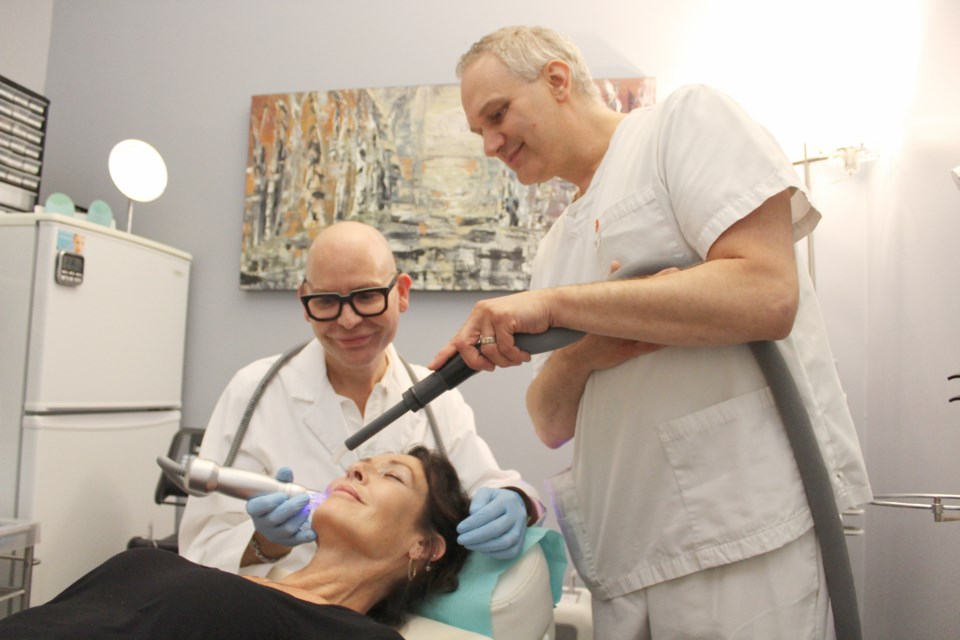A medical esthetician is urging local residents to do their homework before undergoing laser treatment.
Blade Tiessen, who runs the Anti-Aging Clinic and Dispensary in downtown Orillia, is concerned about those who have a lack of training and are offering laser procedures.
“It’s very bad in Canada. There are no regulations on my industry,” he said. “It’s never been a big problem until now because most of the medical lasers have been out of reach for a lot of people.”
Now they are popping up in towns and cities all over the place, he said, with their operators often having received little training.
The manufacturer usually provides brief training, and “they’re not teaching you in this two-day course what you’d learn in college,” said Tiessen.
He has been in the industry for more than 30 years and has multiple certifications, as a medical esthetician, laser technician, phlebotomist and more.
Tiessen said he has been trying for years to encourage regulation of those who offer laser treatments. Pointing to photos of people who have been burned or otherwise harmed by the devices, he said, "there are people out there who can do this type of damage.”
“You can physically scar people with a Class 3 medical device and there’s no regulation,” he said, noting even hairdressing is regulated. “They shouldn’t allow non-health professionals to use professional medical equipment.”
While there isn’t a regulating body for those who use the devices, the equipment itself is regulated.
“Health Canada regulates laser devices under the Radiation Emitting Devices Act, the Medical Devices Regulations and the Food and Drugs Act. These acts and regulations ensure that laser systems sold in Canada are safe and effective when used for their licensed medical purposes by trained professionals according to the manufacturers' directions,” Health Canada said in a statement.
Tiessen is hoping for regulation of the industry, and he says it has nothing to do with competition. Some of those in town who offer laser treatment out of their homes use different equipment or perform treatments he doesn’t, like hair removal.
Also, he had his own bad experience with laser treatment more than a decade ago, when he was injured by a knock-off laser (disguised as being from a reputable company) that has since been taken out of commission.
Tiessen works with a doctor at his clinic, who could have to answer to the College of Physicians and Surgeons of Ontario if something were to go wrong.
“So, there is some (oversight),” he said.
Until the industry is regulated, it’s up to the customers to do their homework. Tiessen suggests they first ask those doing the procedures about their training and qualifications. If there’s a certificate on the wall and it’s from the manufacturer of the device, be wary, he said.
“You could have scarring for life,” he warned. “Do your due diligence.”
The message was similar from the Canadian Dermatology Association (CDA), which issued a statement following a CTV W5 investigation a few years ago, in which a producer was able to become a certified laser technician in less than an hour.
"Until such a time as there are federal regulations about the proper use of lasers, the CDA urges Canadians to ask more questions of cosmetic service providers about their credentials or to speak to their primary care physician for a referral to a dermatologist or other physician with formal laser training," said Denise Wexler, then-president of the CDA.
Health Canada offers information and advice about laser procedures. It is available here.
